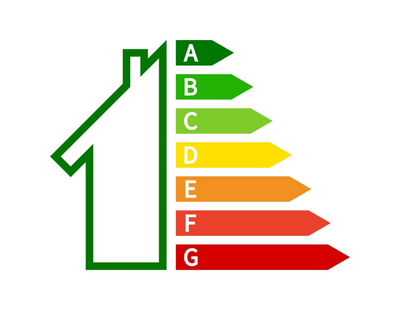The rules state that at the end of the initial five-year period the landlord either needs to have made improvements to raise the EPC banding to an acceptable level, or they must apply for another exemption.
The sort of properties found on many rural estates and farms can be challenging to raise to the required standards without risking damaging the fabric of the building.
As a result, many rural property owners will have registered an exemption under one of a number of valid grounds (see below).
An example is the ‘high cost’ defence which applies where no improvements can be made because the cost of installing even the cheapest recommended measure would exceed £3,500 including VAT.
Landlords need to be aware when reapplying they cannot rely on the fact that they had an exemption before. For example, if they gained an exemption based on high cost, they are likely to need to spend another £3,500 minimum to qualify. The purpose of the exemption is to afford a landlord time to make necessary improvements, rather than act as a mechanism for avoiding making improvements.
Because of the way domestic MEES rules were phased in between 2018 and 2020 anyone with a property portfolio is likely to have exemptions expiring at different times.
It is important that landlords are aware of the date each exemption is expiring and recognise that some capital expenditure may be necessary, even if they are looking to register another exemption. There are also some exemptions, for example the wall insulation one, which need to be backed up by a report from a chartered surveyor, so professional input will be essential.
-
Grounds for exemption:
All relevant improvements made: A landlord is not required to spend more than £3,500 (including VAT) on energy efficiency improvements. If the property cannot be improved to an E rating for that sum or less, all improvements should be made up to that amount, then an ‘all improvements made’ exemption can be registered. Exemption lasts 5 years.
High cost: Applies if no improvement can be made because the cost of installing even the cheapest recommended measure would exceed £3,500 (including VAT). Exemption lasts 5 years.
Wall insulation: Applies if the only relevant improvements are cavity wall insulation; external wall insulation; or internal wall insulation (for external walls) and written expert advice shows that the measures would negatively impact the fabric or structure of the property (or the building of which it is part). Exemption lasts 5 years.
Devaluation: Applies if the landlord has evidence that the installation of energy efficiency measures to the property would reduce the market value of the property (or the building of which it forms part) by more than 5%. Exemption lasts 5 years.
Third party consent: Applies if having used best efforts, the landlord cannot obtain necessary third-party consent to carry out the relevant improvements, for example, lender, tenant or planning consent (or consent is given but subject to conditions that cannot reasonably be complied with). Exemption last 5 years, or where the issue is lack of tenant consent, until that tenancy ends or is assigned to a new tenant.
New landlord: On suddenly becoming a landlord, in certain circumstances detailed in the regulations, such as the grant of a lease due to a contractual obligation, a temporary exemption of six months can be claimed from the date of becoming landlord. At the end of those six months, the improvements must have been made or another exemption registered.
-
* Alexander Macfarlane is Head of Building Consultancy at Strutt & Parker *
We're excited to announce that we're working on building a shiny new website for readers of Landlord Today! As part of this process, commenting on articles will be temporarily disabled. We look forward to sharing our new and improved Landlord Today website with you shortly!








.png)

(1).png)







.jpg)






%20(002).png)




